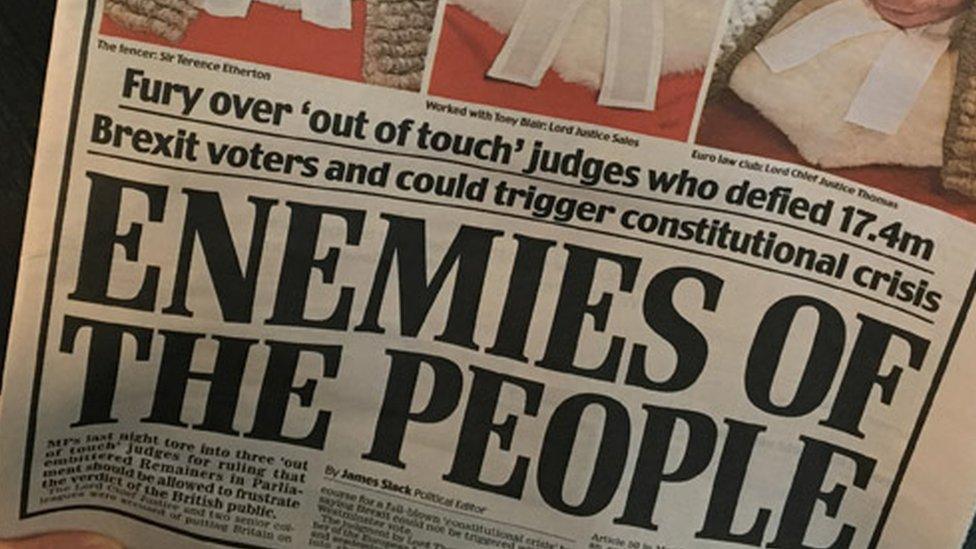First Supreme Court sitting in Wales 'important'
- Published
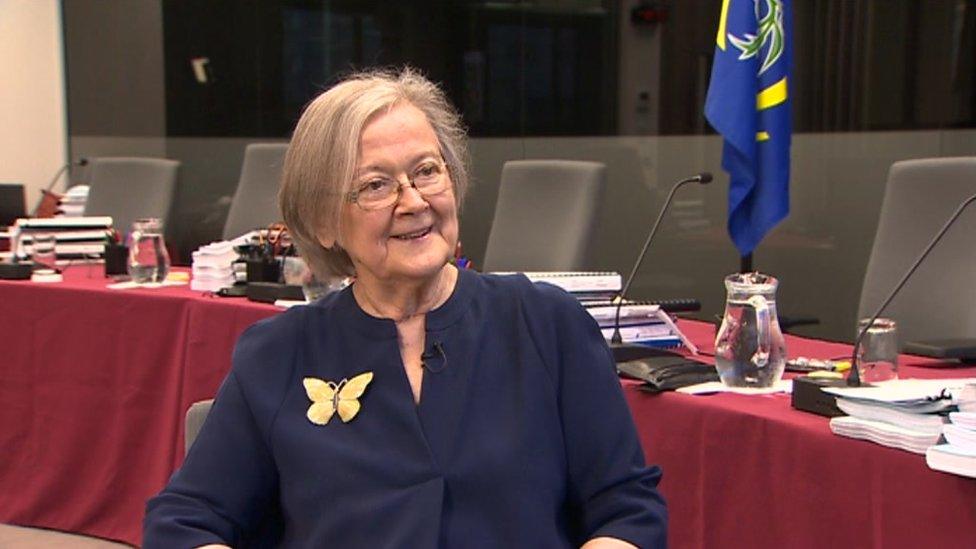
Lady Hale has been Supreme Court president since September 2017
It is important for the Supreme Court to sit in each of the four UK nations, the court's president has said.
Lady Hale spoke as the UK's highest court of appeal has been sitting in Wales for the first time.
She said the court, which has been holding hearings in Cardiff Bay, was "showing the work we do in each of the capital cities in the United Kingdom".
The Supreme Court adjudicates in civil and criminal cases and considers questions over devolved powers.
This is the third time the court has sat outside London since it was established in 2009, having already sat in Edinburgh and Belfast.
"We are the Supreme Court for the whole United Kingdom," Lady Hale said.
"And we're very conscious that the United Kingdom is not just London, is not just England.
"Anybody can watch our proceedings from anywhere in the world [online]… But there's nothing quite like being here in person, even if what's going on is remarkably boring."
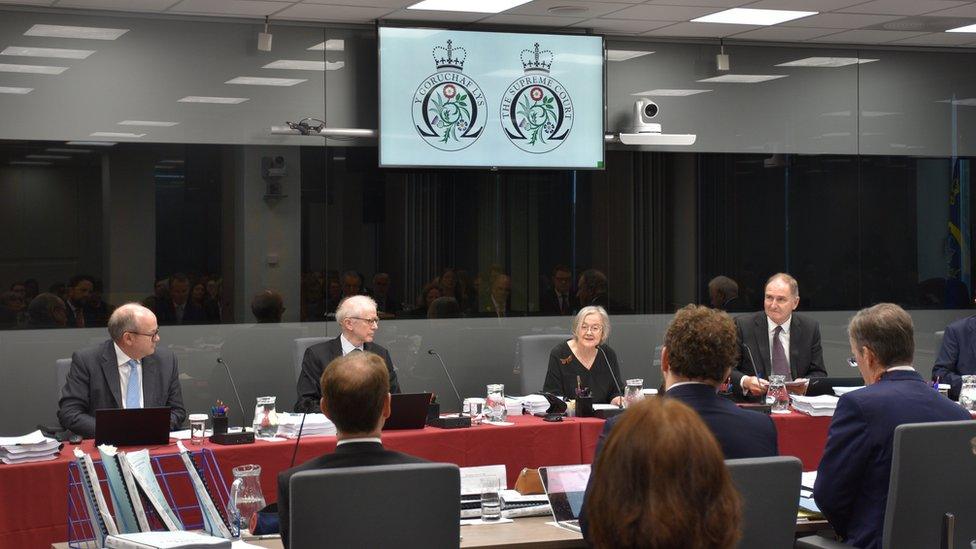
The Supreme Court met in an assembly committee room in Cardiff Bay
Originally from Pontypridd, Lord Lloyd-Jones - who became the first Welsh judge to be appointed to the Supreme Court in 2017 - said he was "absolutely thrilled to be back in Wales".
"It's right that if we are the final court of appeal for Scotland and Northern Ireland, and for England and Wales, that we should be sitting throughout those jurisdictions, throughout those nations."
He added that the court had heard "three references in relation to legislation passed by the National Assembly for Wales, and it's very important that machinery should be in place".
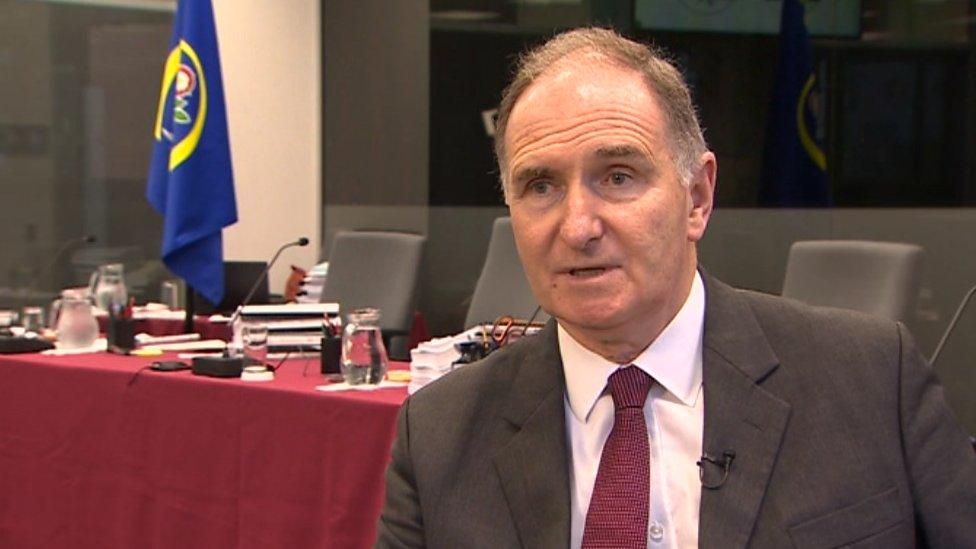
Lord Lloyd-Jones said it was "a particular pleasure to be back" in Wales
A second Welsh judge, Lord Thomas of Cwmgiedd, was also on the panel this week.
He was one of the judges described as "enemies of the people" by the Daily Mail in November 2016, following a High Court ruling that the UK government would require the consent of Parliament before triggering the Brexit process.
Lord Lloyd-Jones said he and his colleagues were "very concerned" about the tone of that coverage, but added that the increased accessibility of proceedings when the case was sent on appeal to the Supreme Court allowed the public to see that "these were not judges who are politically biased, but they are judges doing their conscientious best to come to the right conclusion on a very difficult constitutional issue".
- Published21 July 2017
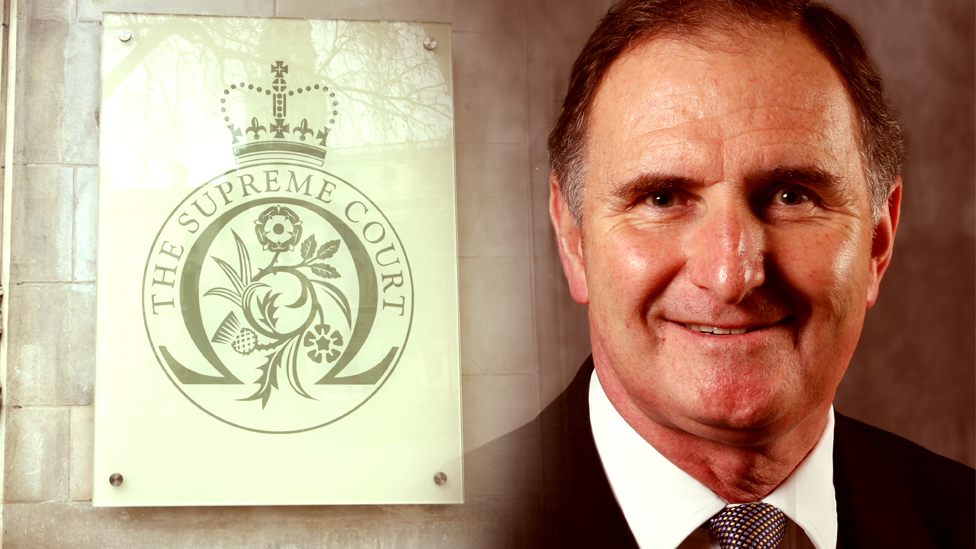
- Published16 February 2017
